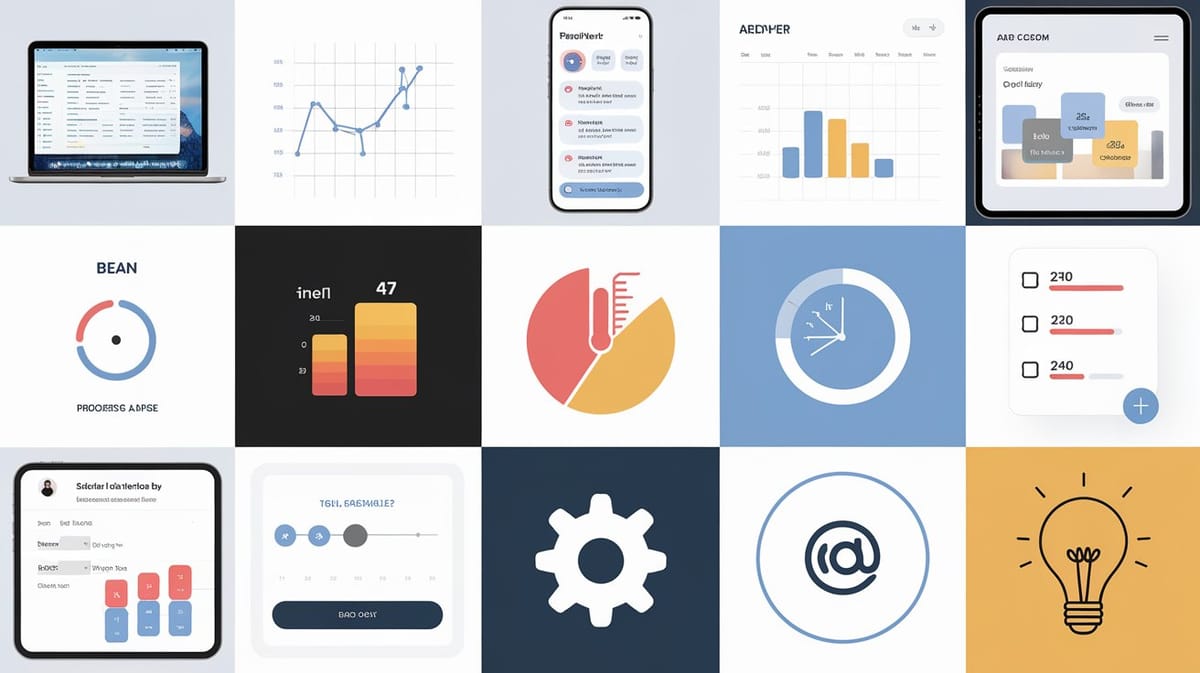Scrum Master vs. Project Manager: Differences Explained

In the dynamic landscape of project management, understanding the distinct roles of a Scrum Master and a Project Manager is crucial for the successful execution of projects. Both roles are integral to the management and delivery of projects, yet they operate within different frameworks and possess unique responsibilities and skill sets. This report aims to elucidate the differences between these two pivotal roles, providing clarity for organizations and individuals navigating the complexities of project management.
The Scrum Master is a role specific to the Scrum framework, a subset of Agile methodologies. This role focuses on facilitating the Scrum process, ensuring that the team adheres to Agile principles, and removing any impediments that may hinder the team's progress. The Scrum Master acts as a servant leader, fostering an environment of collaboration and continuous improvement.
Conversely, the Project Manager operates within a broader spectrum of project management methodologies, including traditional, waterfall, and hybrid approaches. The Project Manager is responsible for the overall planning, execution, and closure of a project, managing resources, timelines, and stakeholder expectations to achieve project objectives.
As organizations increasingly adopt Agile practices, the distinction between these roles becomes more pronounced. Understanding these differences is essential for aligning project management strategies with organizational goals and ensuring the successful delivery of projects. This report will delve deeper into the specific responsibilities, skills, and impacts of the Scrum Master and Project Manager roles, providing a comprehensive comparison to guide decision-making in project management practices.
You can also visit Oncely.com to find more Top Trending AI Tools. Oncely partners with software developers and companies to present exclusive deals on their products. One unique aspect of Oncely is its “Lifetime Access” feature, where customers can purchase a product once and gain ongoing access to it without any recurring fees. Oncely also provides a 60-day money-back guarantee on most purchases, allowing customers to try out the products and services risk-free.
Oncely are hunting for the most fantastic AI & Software lifetime deals like the ones below or their alternatives:

Table of Contents
- Roles and Responsibilities in Scrum and Traditional Project Management
- Scrum Master Responsibilities
- Project Manager Responsibilities
- Key Differences in Roles
- Impact on Team Dynamics
- Conclusion
- Skill Set and Qualifications in Scrum Master vs. Project Manager
- Core Competencies
- Scrum Master Competencies
- Project Manager Competencies
- Educational Background and Certifications
- Scrum Master Qualifications
- Project Manager Qualifications
- Tools and Technologies
- Scrum Master Tools
- Project Manager Tools
- Interpersonal Skills
- Scrum Master Interpersonal Skills
- Project Manager Interpersonal Skills
- Career Path and Development
- Scrum Master Career Path
- Project Manager Career Path
- Core Competencies
- Impact on Team Dynamics
-
- Influence of Leadership Styles
-
- Communication and Collaboration
-
- Conflict Resolution
-
- Motivation and Team Morale
-
- Adaptability and Innovation
-
Roles and Responsibilities in Scrum and Traditional Project Management
Scrum Master Responsibilities
The Scrum Master plays a pivotal role in facilitating the Scrum process, ensuring that the team adheres to Agile principles and practices. The primary responsibilities of a Scrum Master include:
-
Facilitating Scrum Events: The Scrum Master is responsible for organizing and facilitating key Scrum events such as Sprint Planning, Daily Stand-ups, Sprint Reviews, and Sprint Retrospectives. These events are crucial for maintaining the rhythm of the Scrum process and ensuring continuous improvement (Scrum.org).
-
Removing Impediments: One of the core duties of a Scrum Master is to identify and remove any obstacles that may hinder the team's progress. This involves working closely with team members to understand their challenges and collaborating with external stakeholders to resolve issues (Atlassian).
-
Coaching the Team: The Scrum Master acts as a coach for the Scrum team, helping them understand and implement Agile practices effectively. This includes guiding the team in self-organization and cross-functionality, which are essential for Agile success (Scrum Alliance).
-
Protecting the Team: The Scrum Master shields the team from external distractions and interruptions, allowing them to focus on delivering high-quality work. This protection is vital for maintaining the team's productivity and morale (Mountain Goat Software).
-
Fostering a Collaborative Environment: Creating an environment of trust and collaboration is a key responsibility of the Scrum Master. This involves encouraging open communication, facilitating conflict resolution, and promoting a culture of continuous learning and improvement (Agile Alliance).
Project Manager Responsibilities
In contrast to the Scrum Master, the Project Manager in traditional project management methodologies has a broader scope of responsibilities that encompass planning, execution, and closure of projects. Key responsibilities include:
-
Project Planning and Scheduling: The Project Manager is responsible for developing a comprehensive project plan that outlines the scope, timeline, resources, and budget. This plan serves as a roadmap for the project and is essential for tracking progress and managing changes (PMI).
-
Resource Management: Effective allocation and management of resources, including human, financial, and material resources, are critical responsibilities of the Project Manager. This involves coordinating with various departments and stakeholders to ensure that resources are available when needed (Project Management Institute).
-
Risk Management: Identifying, analyzing, and mitigating risks is a fundamental aspect of the Project Manager's role. This includes developing risk management plans and contingency strategies to address potential issues that could impact the project's success (A Guide to the Project Management Body of Knowledge (PMBOK® Guide)).
-
Stakeholder Communication: The Project Manager is responsible for maintaining effective communication with all project stakeholders, including clients, team members, and executives. This involves regular status updates, progress reports, and managing stakeholder expectations (PMI).
-
Quality Assurance: Ensuring that the project deliverables meet the required quality standards is a key responsibility of the Project Manager. This involves implementing quality control processes and conducting regular reviews to identify and address any deviations from the project plan (Project Management Institute).
Key Differences in Roles
The roles of Scrum Master and Project Manager differ significantly in terms of focus, authority, and approach. Understanding these differences is crucial for organizations adopting Agile methodologies or transitioning from traditional project management.
-
Focus on Team vs. Project: The Scrum Master primarily focuses on the team's dynamics and processes, ensuring that the team operates efficiently within the Scrum framework. In contrast, the Project Manager's focus is on the overall project, including scope, schedule, and budget management (Scrum.org, PMI).
-
Authority and Decision-Making: The Scrum Master does not have formal authority over the team and acts more as a servant leader, facilitating and guiding the team. The Project Manager, however, often has formal authority and is responsible for making key project decisions and managing the project team (Atlassian, PMI).
-
Approach to Change: Scrum Masters embrace change and encourage the team to adapt to new information and evolving requirements. Project Managers, on the other hand, typically work within a more structured framework where changes are managed through formal change control processes (Scrum Alliance, PMBOK® Guide).
-
Role in Risk Management: While both roles involve risk management, the Project Manager has a more formalized approach, developing detailed risk management plans. The Scrum Master focuses on identifying and addressing risks through team collaboration and iterative feedback (Agile Alliance, PMI).
-
Communication Style: The Scrum Master facilitates open and transparent communication within the team, promoting a collaborative environment. The Project Manager, however, often communicates through formal channels, providing structured updates to stakeholders (Mountain Goat Software, PMI).
Impact on Team Dynamics
The distinct roles of Scrum Master and Project Manager have a significant impact on team dynamics and project outcomes. Understanding these impacts can help organizations optimize their project management practices.
-
Team Empowerment: The Scrum Master's focus on team empowerment and self-organization fosters a sense of ownership and accountability among team members. This can lead to increased motivation and productivity (Scrum.org).
-
Flexibility and Adaptability: The Agile approach championed by the Scrum Master encourages flexibility and adaptability, allowing teams to respond quickly to changes and deliver value incrementally. This contrasts with the more rigid structure of traditional project management (Agile Alliance).
-
Stakeholder Engagement: The Project Manager's role in stakeholder communication and expectation management is crucial for ensuring alignment and support throughout the project lifecycle. This can lead to better stakeholder satisfaction and project success (PMI).
-
Risk Mitigation: The proactive risk management approach of the Project Manager helps in identifying potential issues early and implementing strategies to mitigate them. This can reduce the likelihood of project delays and cost overruns (PMBOK® Guide).
-
Quality and Standards: The Project Manager's focus on quality assurance ensures that project deliverables meet the required standards, contributing to the overall success and sustainability of the project (Project Management Institute).
Conclusion
While the roles of Scrum Master and Project Manager differ significantly, both are essential for successful project delivery. Understanding their distinct responsibilities and impacts on team dynamics can help organizations choose the right approach for their projects, whether adopting Agile methodologies or maintaining traditional project management practices.
Skill Set and Qualifications in Scrum Master vs. Project Manager
Core Competencies
Scrum Master Competencies
A Scrum Master is primarily responsible for ensuring that a team adheres to Scrum principles, which requires a specific set of skills and qualifications. Key competencies include:
-
Facilitation Skills: Scrum Masters must effectively facilitate meetings such as daily stand-ups, sprint planning, and retrospectives. This involves guiding discussions, ensuring all voices are heard, and keeping the team focused on objectives (Coursera).
-
Coaching and Mentoring: As a "servant leader," a Scrum Master supports team members in understanding and implementing Scrum practices. This role requires strong coaching skills to help team members grow and improve their performance (Timetrackapp).
-
Conflict Resolution: Scrum Masters must address and resolve issues that hinder team progress. This requires excellent problem-solving skills and the ability to mediate conflicts within the team (Coursera).
-
Agile Expertise: A deep understanding of Agile methodologies, particularly Scrum, is essential. This includes knowledge of Agile principles, values, and practices, as well as the ability to adapt these to the team's needs (Timetrackapp).
Project Manager Competencies
Project Managers oversee the entire project lifecycle, which demands a broader skill set:
-
Leadership and Management: Project Managers must lead teams, manage resources, and ensure project goals are met. This involves setting clear objectives, motivating team members, and maintaining accountability (Forbes).
-
Risk Management: Identifying, assessing, and mitigating risks is a critical part of a Project Manager's role. This requires analytical skills and the ability to foresee potential issues that could impact project success (Timetrackapp).
-
Budgeting and Scheduling: Project Managers are responsible for managing project budgets and timelines. This involves financial acumen and the ability to create and maintain detailed project schedules (Coursera).
-
Communication and Negotiation: Effective communication with stakeholders, team members, and clients is crucial. Project Managers must also negotiate project details and manage expectations (Timetrackapp).
Educational Background and Certifications
Scrum Master Qualifications
-
Educational Requirements: While there is no strict educational requirement, many Scrum Masters hold a bachelor's degree in fields such as computer science, business, or engineering. This provides a foundational understanding of the technical and business aspects of projects (Coursera).
-
Certifications: Certifications such as Certified ScrumMaster (CSM) or Professional Scrum Master (PSM) are highly valued. These certifications demonstrate a formal understanding of Scrum principles and practices (Timetrackapp).
Project Manager Qualifications
-
Educational Requirements: Project Managers often hold a bachelor's degree in business administration, management, or a related field. Advanced degrees, such as an MBA, can be beneficial for career advancement (Forbes).
-
Certifications: The Project Management Professional (PMP) certification is widely recognized and often required. It validates a Project Manager's ability to lead and direct projects and teams (Coursera).
Tools and Technologies
Scrum Master Tools
-
Agile Project Management Tools: Scrum Masters frequently use tools like Jira, Trello, or Asana to manage sprints, track progress, and facilitate communication within the team (Timetrackapp).
-
Collaboration Platforms: Tools such as Slack or Microsoft Teams are used to enhance team communication and collaboration, ensuring that all team members are aligned and informed (Coursera).
Project Manager Tools
-
Project Management Software: Project Managers utilize comprehensive tools like Microsoft Project, Primavera, or Smartsheet to plan, execute, and monitor project progress. These tools help in managing complex project schedules and resources (Forbes).
-
Financial Management Tools: Tools such as QuickBooks or SAP are used for budgeting and financial tracking, ensuring that projects remain within financial constraints (Timetrackapp).
Interpersonal Skills
Scrum Master Interpersonal Skills
-
Empathy and Emotional Intelligence: Scrum Masters must understand team dynamics and individual motivations, requiring high levels of empathy and emotional intelligence to foster a supportive team environment (Coursera).
-
Adaptability: The ability to adapt to changing project requirements and team needs is crucial. Scrum Masters must be flexible and open to new ideas and approaches (Timetrackapp).
Project Manager Interpersonal Skills
-
Decision-Making: Project Managers must make informed decisions quickly, often under pressure. This requires confidence and the ability to weigh various factors and potential outcomes (Forbes).
-
Stakeholder Management: Building and maintaining relationships with stakeholders is essential. Project Managers must effectively communicate project status, negotiate changes, and manage expectations (Timetrackapp).
Career Path and Development
Scrum Master Career Path
-
Entry-Level Positions: Many Scrum Masters start as team members in Agile environments, gaining experience in Scrum practices before moving into the Scrum Master role (Coursera).
-
Advancement Opportunities: With experience, Scrum Masters can advance to roles such as Agile Coach or Product Owner, where they can influence larger organizational Agile transformations (Timetrackapp).
Project Manager Career Path
-
Entry-Level Positions: Project Managers often begin as project coordinators or assistants, where they learn the fundamentals of project management (Forbes).
-
Advancement Opportunities: Experienced Project Managers can move into senior roles such as Program Manager or Portfolio Manager, overseeing multiple projects and aligning them with organizational goals (Timetrackapp).
Impact on Team Dynamics
1. Influence of Leadership Styles
The leadership styles of a Scrum Master and a Project Manager significantly impact team dynamics. A Scrum Master typically adopts a servant-leader approach, focusing on facilitating team collaboration and removing obstacles that hinder progress. This leadership style encourages a self-organizing team environment, fostering autonomy and innovation. According to a study by the Scrum Alliance, teams led by Scrum Masters report a 20% increase in team satisfaction and productivity due to the empowerment and support they receive.
In contrast, a Project Manager often employs a more directive leadership style, emphasizing planning, execution, and control. This approach can lead to a more structured team environment, which may be beneficial for projects requiring strict adherence to timelines and budgets. However, it can also result in reduced team autonomy, potentially stifling creativity and innovation. A PMI report indicates that while 60% of project managers believe their approach ensures project success, only 45% of team members feel equally positive about their work environment under such leadership.
2. Communication and Collaboration
Effective communication is crucial in both Scrum and traditional project management, but the methods and impacts differ. Scrum Masters facilitate open communication through daily stand-ups, sprint reviews, and retrospectives, which promote transparency and continuous feedback. This regular interaction helps build trust and cohesion within the team, as noted in a Harvard Business Review article, which states that teams practicing agile methodologies report a 30% improvement in communication effectiveness.
Project Managers, on the other hand, often rely on formal communication channels such as status reports, meetings, and documentation. While this can ensure clarity and accountability, it may also lead to information silos and slower response times to issues. A Gartner study found that teams under traditional project management frameworks experience a 15% decrease in communication efficiency compared to agile teams, primarily due to the hierarchical nature of information flow.
3. Conflict Resolution
The approach to conflict resolution is another area where Scrum Masters and Project Managers differ, impacting team dynamics. Scrum Masters act as facilitators, encouraging team members to resolve conflicts collaboratively. This approach not only empowers the team but also enhances problem-solving skills and strengthens relationships. According to a Forbes article, teams with effective conflict resolution practices report a 25% increase in team morale and a 15% reduction in project delays.
Project Managers, however, may take a more authoritative role in conflict resolution, making decisions to keep the project on track. While this can be effective in quickly resolving issues, it may not address the underlying causes of conflict, potentially leading to recurring issues. A McKinsey report highlights that while 70% of project managers believe their conflict resolution methods are effective, only 50% of team members agree, indicating a potential disconnect in perception.
4. Motivation and Team Morale
The methods used by Scrum Masters and Project Managers to motivate their teams can significantly affect team morale. Scrum Masters focus on intrinsic motivation, encouraging team members to take ownership of their work and celebrate small wins. This approach aligns with the findings of a Gallup study, which shows that teams with high levels of intrinsic motivation are 21% more productive and have 37% lower absenteeism rates.
Project Managers often rely on extrinsic motivators such as deadlines, performance metrics, and rewards. While these can drive short-term performance, they may not sustain long-term motivation. The same Gallup study indicates that teams primarily motivated by extrinsic factors experience a 15% higher turnover rate, suggesting that such motivators may not be as effective in maintaining team morale over time.
5. Adaptability and Innovation
The adaptability of a team and its capacity for innovation are influenced by the roles of Scrum Masters and Project Managers. Scrum Masters encourage a culture of continuous improvement and experimentation, which can lead to innovative solutions and adaptability to changing project requirements. A Deloitte report found that agile teams are 30% more likely to deliver innovative products and services due to their iterative approach and openness to change.
In contrast, Project Managers may prioritize adherence to the project plan, which can limit the team's ability to adapt and innovate. While this approach can ensure project stability and predictability, it may also hinder the team's responsiveness to new opportunities or challenges. The Deloitte report also notes that traditional project teams are 20% less likely to pivot successfully in response to market changes, highlighting the potential limitations of a rigid project management approach.
In summary, the roles of Scrum Masters and Project Managers have distinct impacts on team dynamics, influencing leadership styles, communication, conflict resolution, motivation, and adaptability. Understanding these differences can help organizations choose the right approach for their projects, ultimately enhancing team performance and project outcomes.





